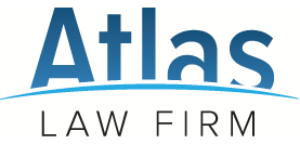Our Latest News

In these challenging economic times, where inflation is making headlines, managing finances has become more complex than ever. A recent article ( https://www.npr.org/2024/05/14/1251295805/credit-cards-debt-inflation ) sheds light on the increasing burden of credit card debt on American households. As a bankruptcy attorney, I see the impact of this burden on a daily basis, and it's essential to address this growing concern. Inflation has a domino effect on the economy, and one of the most immediate impacts is on purchasing power. As prices rise, consumers may turn to credit cards to bridge the gap between their income and expenses. While this may offer a temporary solution, it can lead to a cycle of debt that's difficult to escape. The article points out that credit card balances are rising at a rate not seen in years. This is a clear indicator that more and more people are relying on credit to manage their daily lives. However, with higher balances come higher interest rates and minimum payments, making it even harder for individuals to pay down their debt. As a bankruptcy lawyer, my role is to help clients understand their options when facing overwhelming debt. Bankruptcy can provide a fresh start for those who have exhausted all other avenues. It's a legal process designed to help individuals and businesses eliminate or repay their debts under the protection of the bankruptcy court. The decision to file for bankruptcy is difficult. It's important to consider all factors, including the effects on one's monthly cash flow and financial stability. However, despite the myths concerning what bankruptcy is and how it affects your credit and assets, it can be the most viable solution to regain control of your financial situation and escape the trap of the debt cycle. If you're struggling with credit card debt, it's crucial to seek professional advice. We at Atlas Law Firm can help you assess your financial position and guide you towards the best course of action. Remember, you're not alone in this, and there are legal solutions available to help you navigate through these inflationary times. Don’t settle for believing the myths. Talk to a professional who can tell you what the pros and cons of bankruptcy actually are for your situation. That way, you can make an informed decision on how best to resolve your financial problems. The process starts with a free consultation.
Prior to 2005, there were qualifications in place to qualify for a chapter 7 bankruptcy. Prior to 2005, the qualifications for chapter 7 were based on your monthly budget. The trustee would look at your income and expenses, and conduct a money in / money out analysis. This does not count the payments on any of the debts that you were making, because those are going to be discharged and you are no longer going to be making payments on them. If after you pay your monthly expenses, you are going to have a significant amount of money left over at the end of the month, that disposable income could lead to an objection to you discharging the debt in a chapter 7 bankruptcy. If the objection was successful, you would be required to do a chapter 13 payment plan.
“Heads in beds” refers to a method of how to calculate the size of the household for means test purposes. The first obvious household determinant would be, how many dependents you are claiming on your tax returns. For example, a married couple with two children would be a household of four. Now ideally, in a very simple world, they will be claiming both of those children, as dependents, on their tax returns. But let’s say in a variation of the example that this married couple is a second marriage, and each spouse is bringing a kid from a previous marriage, and they’ve got an agreement with their ex, that every other year, they are going to trade claiming that child as a dependent on their income taxes.
There Are 3 Ways to Keep Secured Debt Through a Bankruptcy.
A chapter 7 bankruptcy trustee is a lawyer hired by the court and appointed to chapter 7 bankruptcy cases that are filed in a particular county or jurisdictions. The role of the chapter 7 trustee is to review the documents filed by the debtor and in chapter 7 to make sure that the assets are properly listed and that the exemptions claims are appropriate under the circumstances. A chapter 7 trustee also looks at potential transactions such as sales of assets prior to filing or gifts that the debtor may have done prior to the bankruptcy case being filed, in which the chapter 7 trustee may be able to claw back some of the assets or funds received because of those transactions. In short, the chapter 7 trustee is a fiduciary for the creditors and that person represents the interest of the creditors in the bankruptcy case.
Chapter 13 is essentially a payment plan that you organize through the court system. Think of it as a consolidation loan with teeth. One of the foundational features of a Chapter 13 is that even though you are working on a payment plan, you do not necessarily have to pay back one hundred percent of the debt. The formula we use in Chapter 13 to determine your payment is: A) monthly net income, minus B) monthly expenses equals, C) disposable income. Whatever that disposable income number is, is what the court wants you to pay each month to your creditors. Under Chapter 13 you can choose either a three year plan or the five year plan depending on what you qualify for. That qualification is tied to your income versus the median income. On the date you file for Chapter 13 the automatic stay goes into effect.
The chapter 7 trustee pays the creditors through a notification procedure. In a chapter 7, 98% of the time we’re able to protect all of our clients’ assets. When we file the petition, there is a box that we check if the debtor believes that there may be assets available to the creditors. Ninety-eight percent of the time we’re able to protect everything, so 98% of the time we check no: no funds available to the creditors. That information is included in that notice of case filing that goes out to all of the creditors at the beginning of the case, and so the creditors know that in a typical chapter 7, it’s very unlikely that they’re going to get anything. If later the chapter 7 trustee is able to determine that there are funds available to the creditors, either because there was a non-exempt asset or perhaps the trustee was able to get money back from a creditor because of a preferential payment, then the trustee will send a Notice of Assets aka Notice to File Claims to the creditors.
Mortgage modification is not part of bankruptcy. When we talk about mortgage modification, this is something that is relatively new. In general a mortgage modification is when your lender determines whether they will allow you to change the terms of your mortgage and modify it. This came to fruition with the economic recession, and the real estate crash of 2008-2009. Mortgage loan modifications were created because the federal government was putting pressure on major banks that handle large amounts of home mortgage lending, to try to work with homeowners to help people keep their homes. The unfortunate thing about it is there are no real teeth to the laws for mortgage loan modification.
There are 2 things you must do after your case is filed: (1) attend the meeting of creditors (aka the 341 hearing); and (2) complete a debtor’s education course via phone within 75 days from the date your case was filed. The 341 hearing is sometimes referred to as the meeting of creditors because your creditors can attend the meeting and ask you questions about the information contained in your petition. It is rare that any of your creditors attend the meeting. Typically, it is a meeting between you, your attorney, and the trustee. The trustee is the attorney hired by the court to oversee your case and determine if any of your assets are not protected under the laws. This is a very straight forward meeting. To determine the meeting location, see our areas of service page. There are 4 things you must bring to this meeting:
We represent people and businesses in both Chapter 7 and 13 bankruptcy cases. We meet with people and businesses to counsel them on their debt resolution options so that they can make an informed choice on whether bankruptcy can help them meet their goals. We advise our clients on how best to prepare for a successful bankruptcy filing and how the laws could affect them in particular circumstances. We represent our clients at Section 341 hearings and any other necessary hearings to ensure their bankruptcy case is successful. We advocate for our clients when legal issues arise in bankruptcy court or when our clients prefer to hire us to handle a debt settlement outside of bankruptcy. We also represent our clients under consumer protection laws, primarily the fair debt collection practices act (“FDCPA”). The FDCPA places limitations on what debt collectors can do and say, and how they can collect their debts from people.

Take The First Step Towards Financial Freedom
At Atlas Law Firm, we guide you toward financial liberation with expert legal advice and personalized strategies. We are committed to ensuring effective solutions across all of Minnesota, particularly within the Minneapolis/St. Paul metro area. Discover the difference our experience makes.

